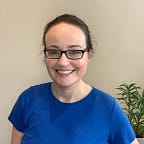I might sound like a sicko, but…
Research into epilepsy excites me. Luckily for me, post temporal lobe resection, I can get excited without worrying (too much) that it’ll cause a seizure!
I’ve had epilepsy for most of my life (the little “rude-word” is still around, albeit quieter than before), but now, today, I have made it my career, my purpose, to bridge the unnecessary, rather unproductive communication gaps between clinicians, scientists and, well, patients and carers.
I’ve always loved the sciences, but, understandably, I grew a particular interest in neurology and neuroscience. I wasn’t able to study both at school, let alone at university: the negative impacts of anti-seizure medications (ASMs), seizures themselves, and mental health comorbidities on my cognitive function were just too much.
However, over the last few years, I’ve been able to slip gently into my aforementioned passions. When stepping outside the patient bubble of epilepsy (which can be really tough to do if you feel “off your face” on seizures and ASMs), there is an incredibly exciting, inspiring, remarkable world of research into epilepsy — and the common comorbidities.
Talking to cool neurologists, scientists, and researchers who want to share their work with us (in layman’s terms, don’t worry) truly gives one that warm feeling of logical hope inside. There is a real, meaningful purpose to their work.
Today we have scientists making research into epilepsy pretty even!
I still forget the terms and OTT 😉 acronyms of neurology — but I know I’m not alone, so I created the Epilepsy Sparks glossary.
I figured I couldn’t be the only person interested in what clinicians and scientists were up to — so I created the Epilepsy Sparks Insights podcast.
I couldn’t be the only person valuing the empirical method, right? So, I started writing about research and getting doctors and scientists to write for us.
I established that there were soooo many professionals contributing to the treatments and care for people with epilepsy, but that most of us didn’t really know what they did — so I decided to include details about them also in the glossary!
I was fed up with the negativity forced on us by epilepsy (oh, negativity comes oh so naturally to many of us 😁) so I chose for the organisation to be constructive and positive — like “The Happy/Constructive News of Epilepsy”!
I found that there were some other companies out there like Living Well With Epilepsy (!) and that through working together, we could achieve even more, internationally.
I’ve always been open about my epilepsy and have never had a bad reaction from an organisation. I figured that being confident and “relatively” knowledgeable about my epilepsy played a key part. So, I decided to set up training/coaching for other people to achieve this. I decided to start speaking about epilepsy, epilepsy research, and the incredible value of it long-term to all society.
Don’t get me wrong — epilepsy is horrific. I call it all of the names under the sun at times! But I’ve found that by focussing on what I can change and managing to the best of my ability what I can’t: my life has improved. I confess I’m frequently thinking “OMG. I feel so stupid!” when I meet so many beautifully inspiring, intellectual people who ALSO have a great personality (!) but, I’m trying to shut myself up 😉 These people are giving us hope for the future. They see the value in communicating with people like us outside of their intellectual, clinical sphere. We should invite them into ours.
Torie Robinson
Keynote Motivational Public Speaker, Blogger, Podcaster, YouTuber, Epilepsy Sparks CEO, Editor, Consultant, et al.
